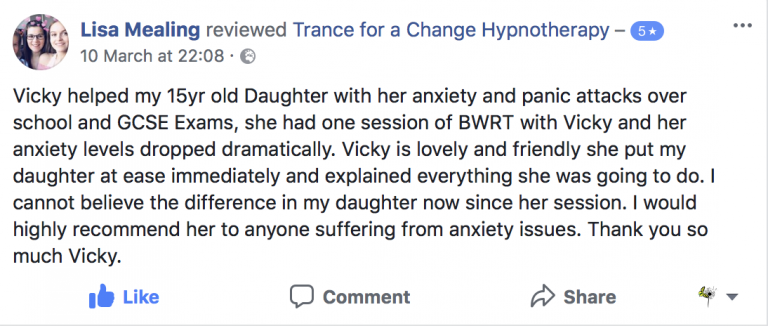
It’s the time of year when a lot of school children and college / university students are studying for their exams and it can feel like the pressure is on. All of the preceding years of learning come together in an intense, and often challenging, period with study and revision being foremost in people’s minds.
Sometimes the pressure is so great that the mind can’t take it. Frazzled nerves, irritation, upset stomachs and even full-blown panic attacks can occur. Academic pressure is reported to play a part in around 96 student suicides each year around the April / May time, when exams are looming.
These tragic events should never be allowed to happen. Below, I have compiled information and advice, together with a free giveaway, to help students put their studying in perspective and to get the best out of themselves during this time.
Why does it sometimes feel hard to remember things?
When our anxiety levels go up, the brain switches from its intelligent, logical and reasoning part and slips into the primitive, emotional part. This is the part of the brain that controls our chemical responses too, which means our systems can become flooded with cortisol and adrenalin. These chemicals work to get us ready for a fight or flight situation. They help us to attack or defend ourselves when we feel under threat. However, they are of no use when we are trying to focus and concentrate.
When we are in this part of the brain our learning processes are limited. We can’t memorise and revision is impossible.
Useful Tips
So, what can we do to help ourselves, or those around us, to actually feel calmer so that studying is easier?
- Anxiety is caused by negative thinking. If we are constantly worrying that we might get bad grades this will just make us feel worse. Sometimes it’s all too easy to forecast the future in the worst terms possible. We can imagine that our exam results will be terrible and then start worrying about all the knock-on effects of that, projecting doom and gloom way into the distant future.
- If we find ourselves imagining the future, we should pretend that we are doing really well.Imagine feeling calm and relaxed in the exam hall. Notice what it would be like to be there and feel really comfortable in that situation. Imagine the answers coming easily and visualise all the positive things that you can think of, including your success.
- A good way to lower anxiety is to focus on our breathing. If we make our out-breaths longer than our in-breaths we will naturally relax more and calm down. When we are anxious our heart rate increases so that more oxygen is pumped around the body and to the muscles, in case it’s needed for a physical response. To counter that, when we increase the amount of carbon dioxide in the bloodstream it will lower those anxious feelings. Try breathing in for the count of 3 and out for the count of 5, or breath in for the count of 5 and out for the count of 7. Do this at your own pace and at a rate that is comfortable for you.
- Sometimes, when we don’t feel that we are remembering the facts and figures that we need, even though we are revising for many hours, it’s easy to think that we should be studying harder. What we really need to be doing is turning off for a little while. Always take regular breaks when revising. Stretching our legs and going for a walk is a good idea – it also helps to reduce the build-up of cortisol, which will automatically help us to feel better.
- Research also shows that actually doing nothing for around 15 minutes after studying boosts our recall. This means going to lie down in a darkened room, without distraction. So, no phones or TV, just silence.
- Ancient Greek scholars would wear sprigs of rosemary because they believed it would improve their performance in tests. Latest neuroscientific research shows that the chemicals in the rosemary plant do appear to help our cognitive function. Rosemary oil could be used, or the plant itself. Simply breathe in the aroma of rosemary for a brain boost.
- It really goes without saying that sleep is absolutely essential and can help improve our memory and concentration. Although it’s very tempting to stay up late revising, all that mental activity just foggies the brain up. When we sleep, neurotoxins are cleared away, which is an extremely important process. This is why we are more alert and responsive after a refreshing sleep.
- Omega 3 fish oils contain chemicals which are known to boost brain function. Make sure you are eating fish or taking supplements in order to give a supercharge to your memory and mood.
- There are many different products on the market that suggest they can help you with studying.Some such products include binaural beats and brainwave entrainment products.
For the first 25 readers, I will give away my Learning and Concentration Binaural Beat track which is enabled with a 10 hz Alpha frequency, to improve learning and concentration. Simply email me at enquiries@tranceforachange.com and I will send a download link to you.
- Find a local therapist who can give you a relaxing treatment of your choice. I work with solution focused hypnotherapy and also BWRT, helping lots of people to feel calm, relaxed and confident. Here is a testimonial below, how one single session of BWRT helped a young lady with her exam worries. Maybe it could help someone you know too?
